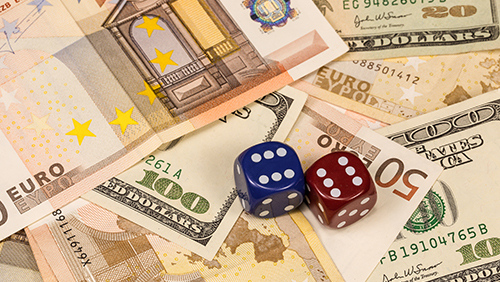The Latvian Parliament has approved a new bill in their 2020 budget that would raise the taxes on some land-based gaming operations within the country.
 According to the bill, gambling establishments that offer such games as slot machines, card and dice games, and roulette will be immediately impacted by the new laws. This new tax hike was initially proposed in October and will now take effect at the first of the year.
According to the bill, gambling establishments that offer such games as slot machines, card and dice games, and roulette will be immediately impacted by the new laws. This new tax hike was initially proposed in October and will now take effect at the first of the year.
As part of the new law, the state budget will receive the largest contributions from the nation’s gambling industry. However, local municipalities that host these gambling establishments will also receive a share of the tax revenue. However, the revenue they will receive under the new bill will be reduced in comparison to what they received prior to the new law.
The annual tax on gambling tables will increase to 28,080 euros ($31,211) from 23,400 euros ($25,878) per table. The tax on slot machines will increase to 5,172 euros ($5,719) from 4,164 euros ($4,604).
According to the finance minister of Latvia, the new amendment is intended to shift the tax burden from the labor force to those casino operations. Plus, it should greatly increase the amount of tax revenue the state is receiving, maybe by as much as 75%. According to the new legislation, 90% of the total revenue will go to the Latvian government while only 10% will go to local municipalities.
This is not the only news regarding gambling coming out of Latvia these days. Early last week the country warned residents of fake lotteries and illegal online gambling sites that have been preying on their citizens. The gambling regulator in Latvia issued a warning expressing his concern.
As part of the warning, the regulator provided a series of keys for people to pay attention to that could indicate they are dealing with a potential scam, especially related to lotteries. These included such things as winning a lottery prize when a person did not sign up to play, being informed they are required to pay taxes upfront to receive the prize, and receiving emails from an address that uses either Gmail or Hotmail as a service provider.
In a statement, the IAUI explained, “In a state-controlled lottery, the winner will never have to pay the prize taxes or money transfer commission before receiving the prize. Don’t send your personal data, bank account details, and money to unknown people.” Any person who receives an email that they have won the lottery is advised to contact the IAUI to verify its authenticity.